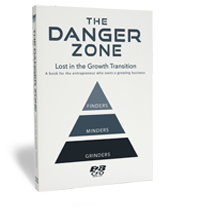Once, chief financial officers were the bean counters, the math whizzes with calculators who churned out periodic financial statements to show a business’s bottom line was healthy.
Then came the recession, and all that changed. Banks and other lenders put a tighter grip on their purse strings. Vendors, worried about their own bottom lines, no longer were willing to wait so long for payments for their goods and services.
CFOs suddenly saw their roles evolving. Yes, they’re still counting the beans and putting out the financial statements, but they’re also playing important roles in charting business strategy. They’re spending more time outside the office maintaining relationships with banks, lenders, vendors and government regulators.
When it comes to business today, it’s all about “show me the money,” said Jerry Mills, founder and CEO of Phoenix-based B2B CFO, which offers the services of more than 210 CFO partners to more than 900 business clients nationwide.
“Businesses have to be more proactive in giving these entities information about their projected cash flow,” Mills said. “These entities don’t want to just know what a company’s financial situation is right now; they want to know what it’s going to look like six months and 12 months from now. The CFO’s role has changed from being important to critical. They have to predict the future. The CFO has to look at all possible risks.”
Even though things are starting to look up after the recession, business owners remain very cautious about how they’re spending and investing their dollars. They’re worried about how future taxes and government regulations will affect their cash flow, and they know all too well how quickly the economy can go south again. All of these things make it more important than ever to have a solid long-term business plan in place.
“Everybody is stressed,” Mills said. “A good CFO can help alleviate some of those issues. They can tell the business owner they’re going to run out of cash in six months. It gives them time to prepare, and they can do it in a nonemergency way. They can negotiate with the bank, vendors and lenders.”
Expanding the mission
As CFO of Goodwill of Central Arizona, Tanya Perry has seen the impact of the recession on both the agency and the people it serves.
Perry said furtherance of the nonprofit’s mission, efficiently managed growth and expansion, and well-balanced diversification of business activities and financial resources are the main challenges the agency faces today.
“Goodwill of Arizona’s mission to put people to work is more critical than ever, and we’ve seen increasing numbers of people in need visiting our career centers and workforce sites,” she said. “Government funding cuts, high unemployment levels, and the housing and economic crises that were particularly devastating to Arizona have all impacted services and increased the competition for resources. We have worked hard to control expenses, optimize banking and investment relationships, and improve operational efficiency. By strengthening our financial position, we’ve been able to expand our mission services to meet the needs of the people in our community.”
Perry said she and other CFOs are playing key roles in business strategies in the postrecession economy.
“The recession brought a lot of challenges to the financial leaders of organizations,” she said. “CFOs needed to break down silos, foster collaboration, increase transparency and help get the entire business moving in the right financial direction. CFOs are playing a larger role in long-term planning, scenario planning, risk management and change management. Ensuring our organizations stay relevant and sustainable in a rapidly changing environment is a key area of focus.”
Perry has built a strong finance team that effectively handles the day-to-day activities and operates with a focus on customer service. The team has worked hard to establish strong relationships with the organization’s operational departments to provide transaction support and to be a true business partner and resource, able to help them manage their lines of business.
“This allows me to ‘stay out of the weeds’ and get out into the community to help identify opportunities and focus on operational and strategic initiatives,” Perry said.
The role CFO has become more advisory in nature, she said.
“CFOs need to be able to make actionable recommendations on both strategy and operations which means the finance department cannot operate as a separate entity,” she said. “It’s the responsibility of the CFO to partner with senior leadership in order to facilitate the high level of cooperation and partnership that’s necessary to keep any organization financially sound.”
Thinking outside the box
When the recession hit in 2008, many businesses naturally reacted by cutting costs and reducing their staffs. But that can be a double-edged sword.
“Cutting costs is always something you’re looking at,” said Mark Cavanaugh, senior vice president and CFO of Firetrace USA LLC, a Scottsdale-based company that provides fire suppression systems. “But … you don’t want to cut costs in an area that’s growing the business.”
Firetrace felt the ripples of the recession, but it survived because it had a business plan that looked well into the future and anticipated its customers’ future needs — and instead of laying people off, it kept the right employees in key positions.
“We have great people who are committed to the company. Even though there was a recession, we were able to show our customers the value of our products and how we could mitigate their risks by having our products,” Cavanaugh said.
“Although the immediate effect of cutting costs would be saving money, in the long term we’d be hurting the business even more because we’d be hurting future opportunities,” he said.



